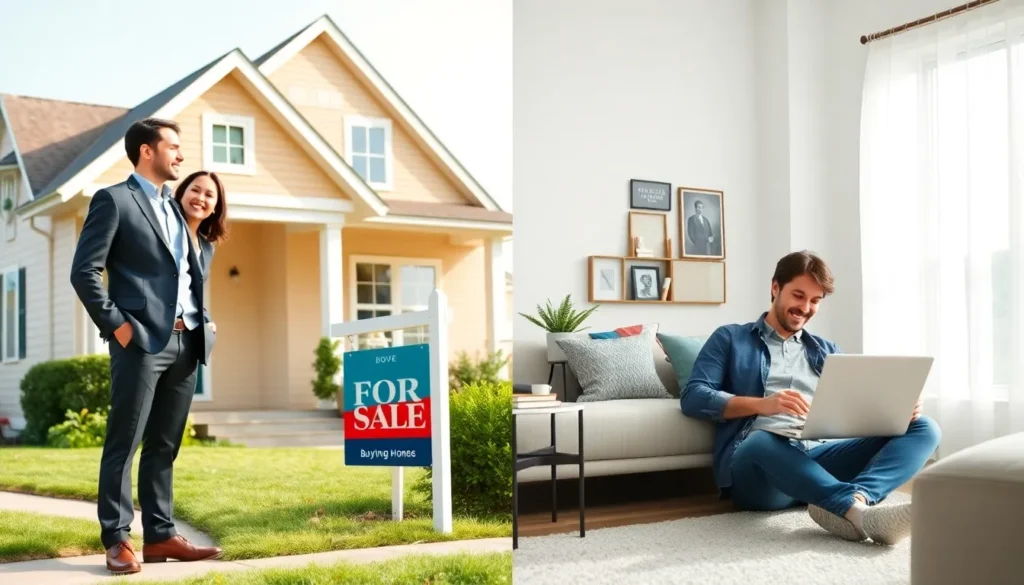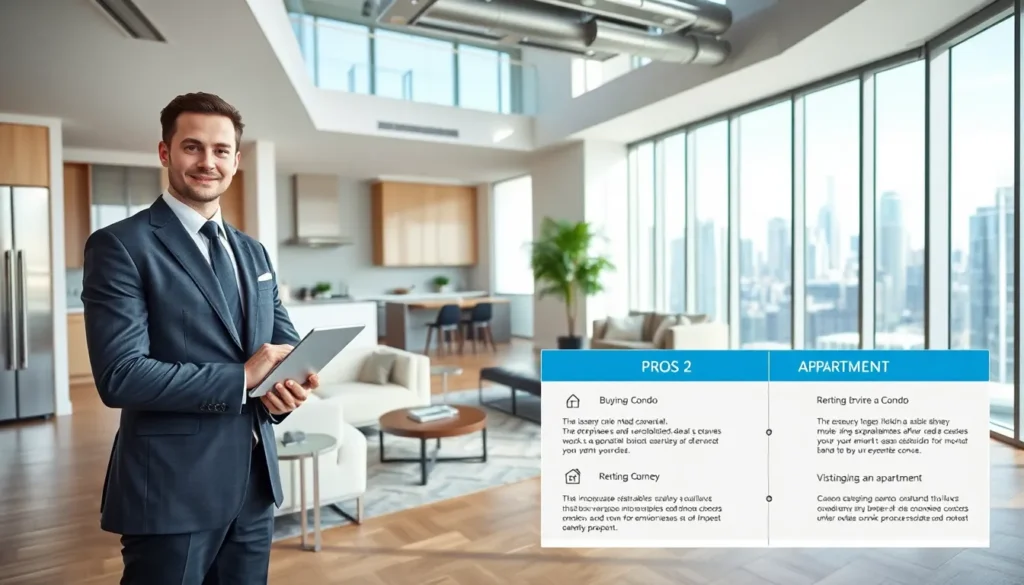Table of Contents
ToggleWhen it comes to housing decisions, the debate between buying and renting has been hotter than your morning coffee. Picture this: you’re stuck in a never-ending loop of paying rent while you watch your landlord sail off on a vacation. Sounds unfair, right? In this text, we’ll explore the benefits of buying vs renting, helping you decide whether it’s time to unlock the door to your own home or keep your keys in the renting game. Let’s break it down.
Financial Considerations

Long-Term Investment Potential
One of the main perks of buying a home is the potential to build substantial wealth over time. Real estate generally appreciates, meaning the value of a home can increase. For many, buying a home represents one of the largest investments they will make, and with the right market conditions, it can prove to be a financial goldmine in the long run. In contrast, renting is like pouring money into a bottomless pit, no equity, no investment, just a monthly ticket for a space that offers no financial return.
Tax Advantages of Homeownership
Homeownership comes with enticing tax benefits that renters can only dream of. For instance, mortgage interest is deductible, which can lead to significant savings each tax season. Plus, property tax deductions can add up, making owning a home an even more appealing financial decision. Renting, on the other hand, does not offer similar perks, essentially leaving renters at the mercy of their landlords without a tax break in sight.
Monthly Costs Comparison
When comparing buying vs renting, it’s crucial to jump into the nitty-gritty of monthly expenses. Homeowners typically have a mortgage payment, property taxes, and homeowners insurance. But, rent may not just cover the cost of the property, it can also encompass utility bills, maintenance fees, and sometimes even a bit of a premium for the privilege of calling a place yours, albeit temporarily.
Buying often comes with an initial down payment that can be hefty, but once that hurdle is cleared, monthly payments tend to stabilize, providing predictability. Conversely, renters may face fluctuating rent prices, especially in hotspots where demand outstrips supply. This variability can be a significant headache for those trying to budget.
Flexibility and Mobility
Stability and Community
Renting offers a level of flexibility that many find appealing, particularly those who thrive on change. Moving for a new job, relationships, or just the desire for a fresh start is easily achievable when one rents. But, this comes at the cost of stability and the ability to invest deeply in a community. Homeowners often foster longer-term relationships with neighbors and can contribute more robustly to their communities, feeling a sense of belonging that renters may miss out on.
Control Over Living Space
Homeowners relish the freedom to modify their living spaces as they see fit. Want to paint the walls a vibrant blue? Go for it. Feel like upgrading the kitchen? It’s all on you. Renters, but, may face strict restrictions on modifications, leaving them to live in spaces that may not feel personalized or reflective of their style. The control associated with homeownership can dramatically enhance one’s quality of life.
Emotional and Lifestyle Factors
Building Equity and Wealth
The emotional fulfillment derived from seeing one’s investment grow can’t be overstated. Homeownership allows individuals to build equity, every payment contributes to ownership. This accumulation of equity is akin to watching your savings grow, giving homeowners a sense of security and accomplishment. Renters, while they may enjoy flexibility, can sometimes feel like they are spinning their wheels without any financial gain in sight.
Personalization and Space Customization
Personalizing a space transforms a house into a home. Homeowners have the liberty to create an environment that mirrors their personality. Renters, conversely, are often limited to decorative aspects, with larger changes requiring landlord approval. This lack of control can lead to a feeling of impermanence, which is less than ideal for those yearning to establish roots.




